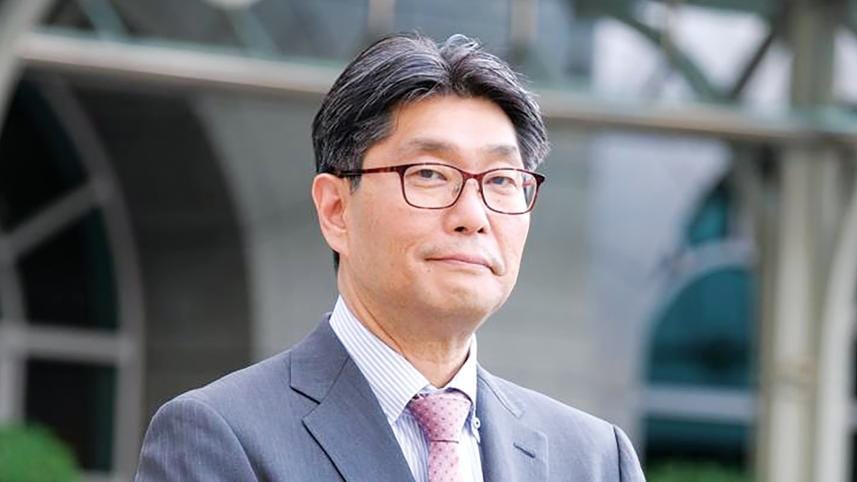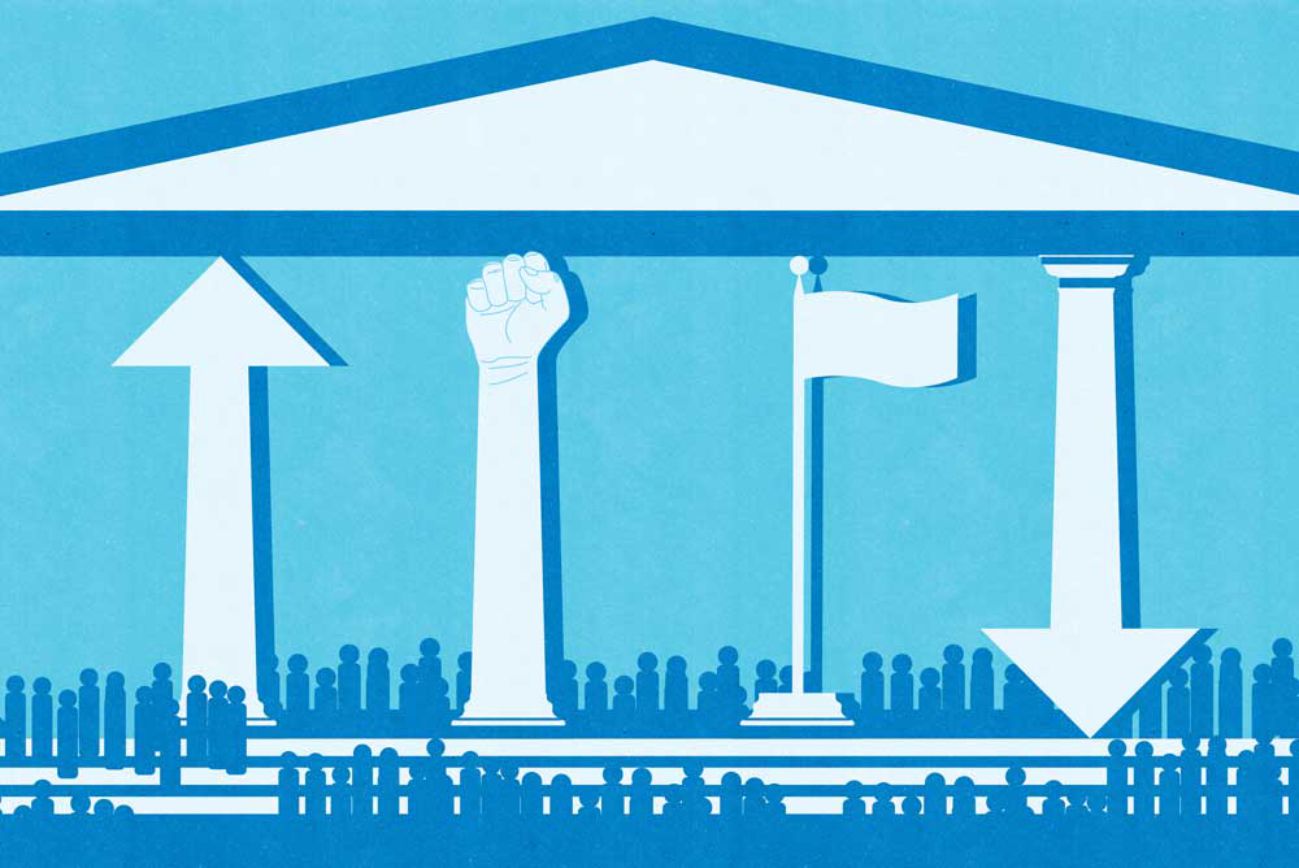ADB projects slower growth amid political uncertainty

The Asian Development Bank (ADB) has projected Bangladesh's GDP growth rate to slow to 4.3 percent in fiscal year (FY) 2025, reflecting a subdued outlook amid political uncertainty, supply disruptions and tight monetary policy.
This marks a decline from its earlier projection of 5.1 percent in September last year.
"The country is facing significant challenges, including tight global financial conditions and rising commodity prices," Takeo Konishi, director general of ADB's South Asia Department, said in an interview with The Daily Star.
"These external pressures will likely aggravate Bangladesh's structural issues, such as limited economic diversification, heavy reliance on imported energy, a large informal sector, climate vulnerabilities, and weak governance and accountability," he said.
The ADB's revised projection aligns closely with the government's plans to lower its GDP growth target for the current fiscal year to 5.25 percent in the revised budget.
This adjustment accounts for the damage caused by multiple floods and the impact of contractionary monetary policies by the interim government to curb inflation.
Konishi said that inflation is expected to remain high at around 10 percent in FY25, compounding fiscal pressures due to arrears in the domestic energy sector and large subsidy commitments.
His recent visit to Bangladesh from January 23 to January 27 focused on these economic issues, as well as the need for critical reforms.
"These challenges will impact foreign exchange reserves, inflation, revenue mobilisation, investment and banking sector stability," said Konishi.
"Against this backdrop, my conversations with the government focused on speeding up critical reforms to diversify the economy, create jobs, improve revenue collection, reform the banking sector and attract foreign investment," Konishi said.
He said, "These discussions are also well aligned with key findings of the White Paper on the State of the Economy, which aims to find actionable solutions to stabilise the economy and ensure sustainable growth."
ADB's support for Bangladesh
The Manila-based multilateral lender has pledged significant financial support for Bangladesh. In 2024, ADB committed more than $1.2 billion in combined sovereign and non-sovereign operations and plans to allocate around $2 billion in 2025.
The IG (interim government) requested ADB to help upgrade railways, address the shortage of locomotives, expand a gas pipeline, stabilise banking sector, boost social protection, and advance human capital development, among other things.
"We are aligning key projects with the IG's goals, emphasising high projet readiness and effective management of ongoing and upcoming projects," Konishi said.
He said that discussions also explored reforms in the energy and financial sectors, operationalising the Bangladesh Climate and Development Partnership (BCDP) and transitioning to a green economy.
According to ADB, Bangladesh remains highly vulnerable to climate change, with potential gross domestic product (GDP) losses of up to 30.5 percent by 2070 under high-emission scenarios.
Konishi highlighted ADB's commitment to climate-focused initiatives.
"In 2025, ADB aims to commit about $1 billion in climate finance for policy and institutional reforms, climate-resilient infrastructure development, renewable energy, decarbonisation, nature-based solutions and disaster risk reduction," he said.
Besides, ADB is providing technical assistance for the development of a National Adaptation Plan (NAP) roadmap and operationalising the BCDP. Ongoing discussions include a river restoration project and capacity-building initiatives to integrate climate considerations into national planning and budgeting, he added.
Within the energy sector, Konishi said that ADB has been a key partner for Bangladesh, financing $5.2 billion for power projects and $1.2 billion for the gas sector since 1973. Currently, nine projects worth $2.36 billion are underway, with a new initiative to improve power transmission and renewable energy expected to be approved this year.
"We are also in discussion with the IG for planning and prioritising multiple energy sector projects for ADB financing over the next several years, focusing on transmission, distribution, renewables, efficiency and sectoral reforms," Konishi said.
As Bangladesh prepares for its transition from least-developed country (LDC) status, Konishi emphasised a smooth economic shift.
"Several strategic actions were discussed with the IG to ensure a smooth economic transition," he said, including an economic stabilisation programme, a framework for the 2025–26 national budget and expediting sustainable development goals (SDG) realisation.
Private sector as growth engine
ADB has identified the private sector as a critical driver of economic recovery and job creation in Bangladesh.
In 2024, the bank committed over $70 million to private sector projects, including utility-scale solar, rooftop solar and specialised textiles.
"The private sector plays a crucial role in driving economic growth in Bangladesh by diversifying the economy, generating more jobs, fostering innovation and boosting productivity," Konishi said.
He said that ADB's initiatives include policy reforms, SME financing and support for public-private partnership (PPP) projects, such as a recently signed agreement for a green data centre.
Efficiency in project implementation is also key to maximising economic returns, according to Konishi.
"Enhancing project implementation efficiency is critical for minimising costs and maximising both economic and financial returns, leading to the optimal use of resources," he said.
To address delays caused by procurement issues, institutional capacity gaps and land acquisition challenges, ADB is collaborating with the government to strengthen project screening processes and prioritise readiness.
"We emphasise enhancing institutional setup with strong project ownership from the very beginning, improving procedural efficiency, and ensuring high-quality projects with value addition," Konishi added.
As Bangladesh navigates political and structural challenges, Konishi reaffirmed ADB's commitment to supporting the country in stabilising its economy and achieving sustainable growth.




 For all latest news, follow The Daily Star's Google News channel.
For all latest news, follow The Daily Star's Google News channel. 
Comments